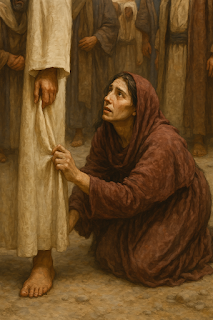
Discover “This Week With Jesus” — your sanctuary for daily inspiration, revival, and unwavering faith. Dive into reflections that renew the soul, ignite hope, and reveal the transformative power of God in everyday life. 💜 Stand with us in compassion. We proudly support Cancer Companions, who walk beside those affected by cancer with faith, love, and restorative care. Click on the sidebar to join the mission!
Wednesday, July 30, 2025
Monday, July 28, 2025
Daily Bread & Eternal Trust
Thursday, July 24, 2025
Worry & Concern: Pastor Rajiv
When in Trouble - Stand still!
It is in this pause, not in panic, that wisdom dwells. Despair whispers, “Give up—there’s no way out.” But the Lord calls for strength wrapped in joy, even in the darkest hour, and for faith rooted in His unwavering love.
Cowardice urges retreat: “Return to your former ways; this path is too hard.” But if you are truly a child of God, this is not an option. His sovereign word compels you forward—from strength to strength—unstoppable even by death or the forces of hell.
Standing still is not surrender, but preparation. It is the gathering of strength for the next leap. Precipitancy demands action: “Do anything—just don’t wait!” Yet rushing often blinds us to the true work God is already orchestrating.
Presumption cries, “Walk into the storm and expect a miracle!” But Faith listens to none of these voices. Faith hears one command: “Stand still.” And like a mountain unmoved, it obeys.
To stand still is not to idle, but to hold oneself upright, alert, and ready—for the next divine instruction. It is a posture of patience, confidence, and expectation. And soon enough, the voice will come, as unmistakable as it did to Moses: "Go forward."
Wednesday, July 16, 2025
Pastor Rajiv: Reliving Jonah
Tuesday, July 15, 2025
The Last Resort
Thursday, July 10, 2025
Silent Battles
Wednesday, July 9, 2025
The Tzitzit
Sunday, July 6, 2025
The Touch
Monday, June 30, 2025
Fear, Uncertainty & Doubt
This Week
The Christmas We Wouldn’t Believe
How would we respond if the Christmas story unfolded in our world—not in ancient Bethlehem, but i...









